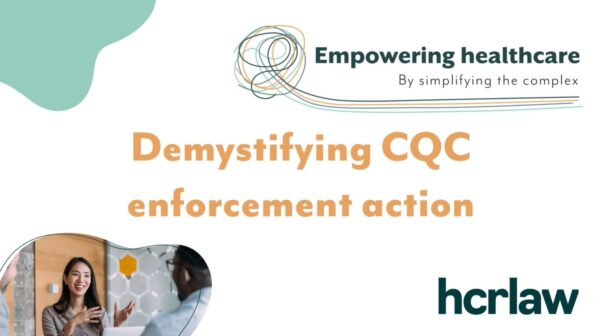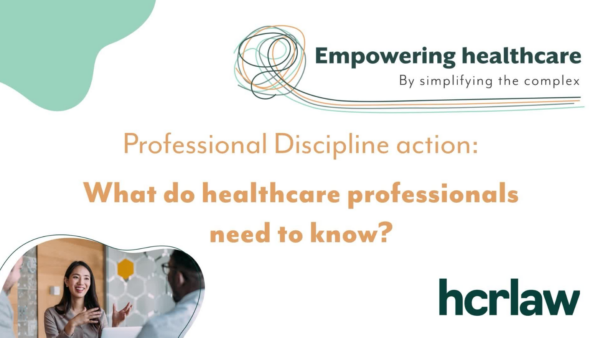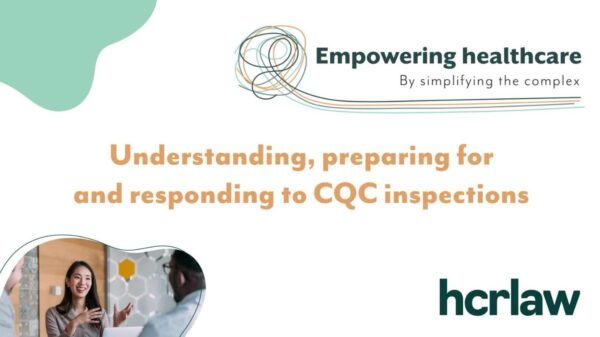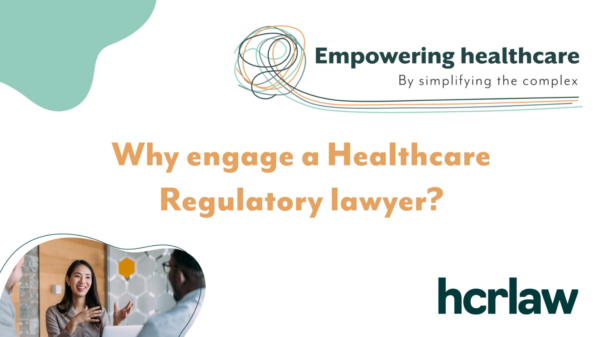
A little known CQC enforcement power with devastating consequences for providers
1 December 2011

Single registration, enabling a provider to be registered in relation to multiple services, was trumpeted as a more proportionate and sensible way of regulating the sector when the Health and Social Care Bill (now Act) was passing through Parliament. However, providers who fall into this category are at considerable risk of a form of urgent enforcement action which CQC deploys under section 31 of the Health and Social Care Act 2008. CQC can serve a Notice of Decision on a registered person imposing, varying or removing a condition of registration on an urgent basis which will take effect immediately. CQC can deploy the power whenever it has reasonable cause to believe that any person will or may be exposed to risk of harm in a service. Sounds innocuous enough so why the concern?
Our anxiety derives from the CQC being able to remove a location (expressed as a condition of registration) from the provider’s registration with immediate effect by simply serving a Notice of Decision (“Notice”) on the provider. The effect of the Notice will be to close the service as it will be unlawful to carry it on once the condition is removed. The provider has no statutory means of challenging or appealing the decision until after it has taken effect. There is a right of appeal to the First-tier Tribunal which will be fast tracked, meaning the hearing should come on within a matter of a few weeks but by that stage all the service users will have left the service and the provider may not have the resources to challenge the decision.
In contrast, if a provider runs a single service under their registration the only way that the CQC can cancel that registration is by making an urgent application to a magistrate under section 30 of the 2008 Act. The statutory test is that if the order is not made to cancel the registration there will be a serious risk to a person’s life, health or well-being. Ordinarily, the provider will be notified of the application and will be able to attend the magistrates’ court and contest the application, with or without legal representation.
The first thing to note is that the test of serious risk under section 30 is higher than the one under section 31 which only requires the CQC to have reasonable cause to believe a person will or may be exposed to the risk of harm. Why might this be the case? Our view is that section 31 was never intended to have the effect of cancelling a service. That is because conditions of registration are only meant to be restrictions on a registration e.g. a cap on numbers in a care home, or, alternatively, a means of setting actions to be taken by a provider to bring them into compliance with statutory requirements. A condition of registration is not intended to have the effect of closing an entire service down. However, the CQC is faced with a real difficulty in regulating the multi-site provider in circumstances where, say, one service falling under the registration is deemed to be failing to the point where it needs to be shut, yet the other services are running to an acceptable standard. The CQC cannot apply to a magistrate for an order cancelling the entire registration as that would be disproportionate. All the CQC can do is serve a Notice under section 31 removing the location which is deemed to be failing from the registration.
The CQC should be very careful how it exercises this power given the draconian consequences for the provider, staff and the residents. In practice, the CQC should only be exercising this power in the most serious cases.
On a practical level, it will be important for multi-site providers to develop their risk management strategies to take into account the existence and use of this new enforcement power. It should not be left until something goes wrong as the CQC may not give any warning before service of the Notice. Specialist legal advice will assist in developing strategies to manage and reduce the risk of this power being exercised by the CQC. In circumstances where such a Notice is served on a provider, urgent legal advice will be required. We would be delighted to help providers in responding to this.










